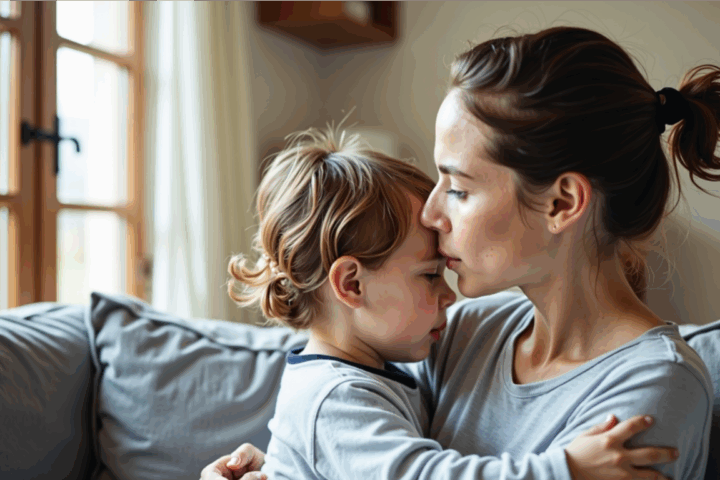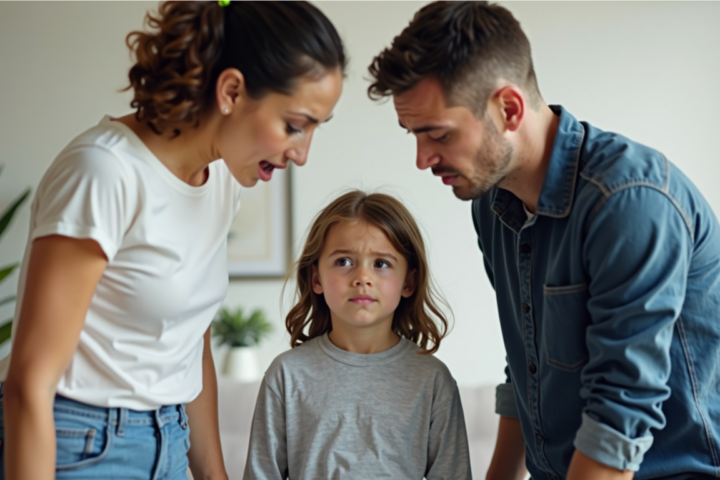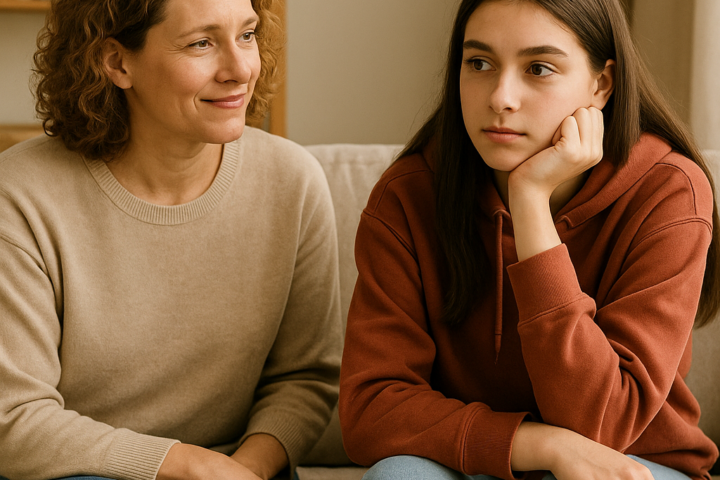Divorce doesn’t end your story as parents. It just rewrites the shape of the family. When children are involved, co-parenting after divorce becomes a long, sacred, and sometimes heartbreakingly hard road. And if you’re walking that road with hurt still in your chest and worry in your gut, you’re not alone. This guide isn’t just logistics—it’s nervous-system literacy, relational repair, and fierce love in action. Let’s breathe into that together.
Understanding Co-Parenting After Divorce
Co-parenting is the ongoing collaboration between two people who are no longer romantic partners, but are forever connected through a child. It’s the daily, often messy, act of putting your child’s needs above ego, resentment, and reactivity. That’s no small thing.
Co-parenting vs. Parallel Parenting Co-parenting thrives on cooperation, open communication, and joint decisions. But not every dynamic is safe or ready for that. Parallel parenting allows distance and structure when contact is strained, because sometimes protection is part of love, too. Either way, your child doesn’t need two perfect parents. They need two regulated ones.
Challenges of Co-Parenting After Divorce
There’s no map for this terrain, especially when grief, guilt, and history cloud the way. Some of the common bumps along the road include:
- Emotional triggers: Old patterns and raw feelings resurface—sometimes in the school parking lot or over text at 9 p.m.
- Clashing parenting styles: Your ex feeds them pizza at midnight, and you’re clinging to organic kale and 8:00 bedtime routines.
- Overwhelm: Coordinating two lives, multiple calendars, and holiday negotiations is emotionally laborious.
- New partners: Blending families can feel like ripping off a scab before it’s healed.
Let’s pause. This is hard, not because you’re failing, but because your system is wired for connection and consistency. Of course, this hurts, and of course, it’s confusing.
Effective Communication Strategies
When the relationship is over, but the parenting continues, communication can feel like navigating a minefield. Here’s how to make it safer:
- Neutral tone, clear agenda: Talk like colleagues, not combatants. “We need to finalize summer camp plans” lands better than “You always ignore me.”
- Choose your channel wisely. If texting gets heated, use co-parenting apps. Give yourself a beat before hitting send.
- Stick to the subject: Parenting topics only—no wandering into ancient grievances or emotional landmines.
- Repair matters: Own your part. “I snapped. That wasn’t fair. Let’s reset.” You’re modeling accountability for your kid and yourself.
What if this tension wasn’t about your ex, but about a younger part of you still waiting to be heard? Your body remembers. And you get to tend to that part now.
Establishing a Co-Parenting Plan
This is more than a document. It’s a stabilizer for your child’s nervous system. A co-parenting plan should hold the bones of your new parenting structure:
- Week-on/week-off or 2-2-3 schedule?
- Clear agreements around bedtimes, screen time, and discipline
- Shared decisions on education, healthcare, and spiritual upbringing
- Emergency contacts, travel plans, and holiday rotations
Consistency doesn’t mean rigidity. You can adapt while keeping the anchor firm. Think of this plan as scaffolding, not shackles.
Tips for Successful Co-Parenting
Here’s what steadies the ship when the seas get choppy:
Do:
- Speak your child’s name more often than your ex’s
- Use drop-offs as neutral rituals, not battlegrounds
- Show up when you say you will—this builds trust
- Let your kid love you both without guilt
Don’t:
- Ask your child to carry messages or “spy”
- Use financial leverage as punishment
- Demonize the other parent in front of your child (even if it’s true and even if it’s hard)
This isn’t about being “civil” for show—it’s about not making your child the container for adult grief.
Supporting Children Through Divorce
Children don’t need us to fake happy. They need us to be honest, regulated, and present. They need to know that even when things fall apart, love still holds.
- Create rituals across both homes—a bedtime story by phone, the same toothbrush at both houses.
- Let them talk about missing the other parent without flinching
- Name what’s hard: “It makes sense you feel torn. I’m here with you.”
- Get them support. Therapy isn’t a luxury—it’s a lifeline.
Your child’s heart is scanning for safety, not perfection. Offer your calm. Offer your truth. Offer repair when you get it wrong.
Legal Considerations in Co-Parenting
Legal structure can feel sterile, but it can also be sacred. It creates containment so everyone feels safer.
- Use mediation when possible—it empowers both parents
- Put agreements in writing. Clarity prevents future chaos
- Know your rights and your limits. Consult a lawyer who specializes in family dynamics, not just statutes
A good legal agreement is like a trauma-informed boundary—it says, “This is where I end, and you begin. And this is how we keep the child whole.”
Resources for Co-Parenting after Divorce
You don’t have to do this alone—or reinvent the wheel. Reach for support:
- Books: “Two Homes, One Childhood” by Robert Emery, “The Co-Parenting Handbook” by Karen Bonnell
- Sites: helpguide.org, UptoParents.org
- Apps: OurFamilyWizard, TalkingParents
- Therapy: Co-parenting therapy can be life-changing. So can solo work.
There is no gold star for doing this without support. Ask for help. Receive it.
Conclusion
Co-parenting after divorce isn’t about perfection—it’s about presence. It’s about choosing to rewire your reactivity, repair what’s been ruptured, and offer your child a felt sense of stability.
This is not easy, but it is powerful. Every hard conversation you navigate and moment you self-regulate instead of retaliate is healing, not just for your child but also for you.
You’re not too much. You’re carrying too much. Let’s lay some of it down.
Send this article to someone who needs to read this today, because we’re all in this together.❤️











